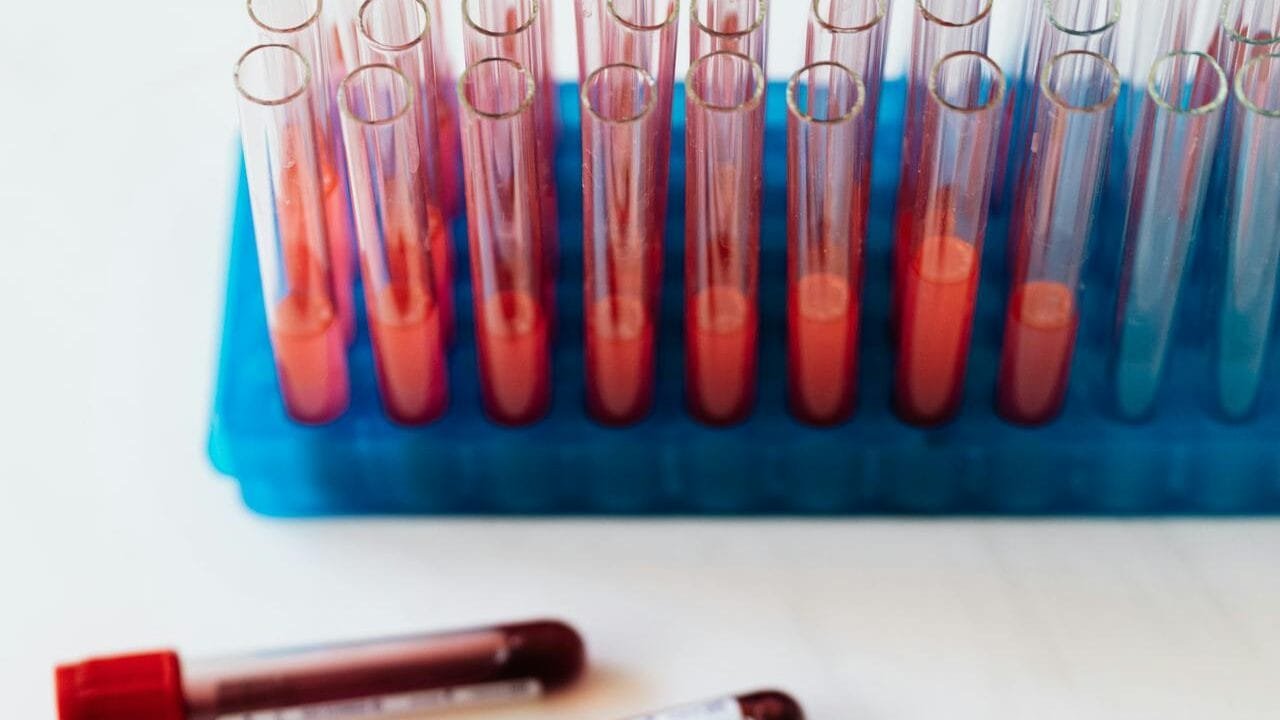Why Do You Need A Anti-Mullerian Hormone (AMH) Test?
What is an AMH Test? | Why is it Important? | Understanding Results | What Happens in the Test? | Factors Affecting AMH Levels | AMH Test Limitations | Next Steps After Testing
Are you curious about the number of egg reserves you have left? The Anti-Mullerian Hormone test might just hold the answers you’re looking for.
This simple blood test measures the Anti-Müllerian Hormone (AMH) levels in your body. Understanding your AMH levels can help you make informed decisions about family planning and fertility treatments.
In this post, we’ll explore what the AMH test is, why it’s important, and how it can benefit you in fertility planning.
What is an Anti-Mullerian Hormone Test?
The AMH test is a common tool doctors use to understand reproductive health. The test measures the amount of anti-Mullerian hormone in your blood. Both men and women produce this hormone.
How Does The Anti-Mullerian Hormone Test Work?
Doctors take a small blood sample to measure AMH levels. Both men and women produce this hormone, but it’s especially important for women. The amount of AMH in your blood helps estimate the number of eggs you have left, which doctors call your “ovarian reserve.”
This information can be useful in many ways:
- Family Planning: Knowing your AMH levels can aid in making informed family planning decisions. It helps you understand your chances.
- Fertility Treatments: AMH levels help doctors decide on the best course of fertility treatments.
- Early Warnings: Low AMH levels can be a sign that it might be harder to get pregnant naturally.
- Health Conditions: Conditions like PCOS (Polycystic Ovary Syndrome) often affect AMH levels.
What Anti-Mullerian Hormone Levels Mean
Interpreting AMH levels can be complex. In a nutshell:
- Low AMH Levels: Suggest a lower number of eggs. Might indicate that it could be harder to conceive.
- High AMH Levels: Could mean a higher number of eggs, but sometimes indicate issues like PCOS.
To get a detailed walkthrough on how AMH levels affect fertility, check out this WebMD article.
When to Talk to Your Doctor
If you’re unsure about your fertility or you’re planning to start a family, now is a good time to talk to your doctor. Early testing can provide you with information essential for planning your future. For a more in-depth understanding, read this guide from the Cleveland Clinic.
See more detailed information about AMH levels and how they can be modified through lifestyle choices and medical treatments.
Why is the Anti-Mullerian Hormone Test So Important?
Ovarian Reserve Assessment

The Anti-Müllerian Hormone (AMH) test is one of the most reliable methods for assessing a woman’s ovarian reserve. Ovarian reserve refers to the number and quality of eggs remaining in a woman’s ovaries. Here’s why this assessment is important:
- Fertility Insights: If you are thinking about having children, knowing your ovarian reserve can help predict how easily you might conceive. The AMH test measures the levels of AMH in your blood, which correlates with the quantity of eggs you have left.
- Guiding Treatments: The information obtained from an AMH test can guide your doctor in choosing the right fertility treatments for you. For example, women with lower ovarian reserve might benefit from starting treatments sooner rather than later.
For a deeper dive into how the AMH test works and its importance, look at this comprehensive guide on ovarian reserve testing.
Predicting Menopause
The AMH test also plays a significant role in predicting the onset of menopause. Menopause is an inevitable stage in a woman’s life, but its timing can have significant implications for health and well-being. Here’s how the AMH test helps:
- Forecasting Timeline: By looking at AMH levels, doctors can estimate when menopause might begin. Women with very low AMH levels might experience menopause sooner than those with higher levels.
- Health Planning: This information can be crucial for planning other aspects of your life, such as career and family. A clearer idea of when menopause will occur can help in making better-informed decisions.
Several studies have shown that the AMH test is a strong predictor of the onset of menopause. Evidence supports that AMH levels can indicate the “median time to menopause” in late reproductive age women1. For more scientific details, check out this study on AMH as a predictor of menopause.r preparing for menopause, the AMH test offers valuable insights that can guide your decisions and improve your quality of life.
How is the AMH Test Performed?
The AMH test is a straightforward and routine procedure that provides crucial information about a woman’s fertility. Let’s break down how this test is performed and what you can expect during the process.
Blood Sample Collection
Your blood is then sent to a laboratory where specialists measure the amount of Anti-Müllerian Hormone present. You can learn more about what to expect during the AMH test procedure from the Cleveland Clinic.
Interpreting AMH Test Results
High AMH Levels:
High AMH levels can tell us a lot about ovarian health. Generally, high levels of AMH suggest that a woman has a higher ovarian reserve, meaning more eggs are left in her ovaries. This may appear as good news, but there are potential complications to consider:
- Polycystic Ovary Syndrome (PCOS): One condition associated with high AMH levels is PCOS, a hormonal disorder causing enlarged ovaries with small cysts on the outer edges. High AMH levels may indicate more than just egg quantity. They could signal that PCOS is present, which often affects reproductive health.

- Greater Egg Supply: High AMH usually means more eggs. This theoretically increases the chance of becoming pregnant naturally or through treatments like IVF. But remember, quantity doesn’t always mean quality.
Several studies have highlighted that high AMH can have mixed impacts. For instance, a Weill Cornell study has shown that excessively high levels could be a sign of underlying issues.
Knowing what high AMH indicates can help you take the next steps, like consulting a fertility specialist.
Low AMH Levels:
Low AMH levels raise different concerns. They often suggest a diminished ovarian reserve, which could make conception more challenging. Here’s what low AMH can mean and potential next steps:
- Declining Egg Quantity: Low AMH levels usually point to fewer remaining eggs. This can be natural as a woman ages, but for younger women, it could indicate early ovarian aging.
- Fertility Treatments: Women with low AMH levels might find it harder to respond to conventional IVF treatments. However, alternative options like Natural IVF and Modified Natural IVF can offer more tailored solutions. For example, read about Low AMH IVF treatments for more information.
- Immediate Consultation: It’s often advised to see a specialist if you have low AMH levels. Early intervention can provide more options. As suggested by a comprehensive FAQ on AMH levels, consulting a fertility expert is crucial for creating a personalized fertility plan.
While low AMH levels can sound worrying, understanding them helps you take proactive steps to address your fertility concerns. Embracing the right strategies and seeking timely advice can lead you to successful outcomes.
Factors Affecting AMH Levels
AMH levels are affected by many factors. Let’s explore some key factors below!
Age
Age is perhaps the most significant factor affecting AMH levels. As women age, their AMH levels naturally decline. This decrease is a normal part of aging and indicates a reduction in the number of viable eggs. As a woman approaches her late 30s and early 40s, AMH levels drop, indicating a lower ovarian reserve.
Lifestyle Factors

Several lifestyle factors can impact AMH levels. While some habits could negatively affect your AMH levels, others might have minimal or no impact.
- Smoking: Smoking significantly lowers AMH levels. Studies show that smokers have lower ovarian reserves than non-smokers.
- Obesity: High body mass index (BMI) can also impact AMH levels, although the extent varies among individuals. Research suggests a complex relationship between body weight and AMH.
- Exercise: Moderate exercise is generally beneficial, but extremely high levels of physical activity may lower AMH levels.
- Alcohol and Caffeine: Excessive alcohol and caffeine intake can have negative effects. To understand more, check this comprehensive article on lifestyle factors affecting AMH.
Medical and Surgical History
Medical conditions and past surgeries can also influence AMH levels.
- Polycystic Ovary Syndrome (PCOS): Women with PCOS often have higher AMH levels because of the higher number of follicles in their ovaries. For more about PCOS and AMH, read this detailed report.
- Ovarian Surgery: Procedures like cyst removal can decrease the ovarian reserve, thereby lowering AMH levels.
- Chemotherapy and Radiation: Treatments for cancer can severely affect ovarian reserve and AMH levels.
Genetic Factors
Sometimes, low AMH levels can be linked to genetic predispositions. If you have a family history of early menopause or ovarian insufficiency, your AMH levels might also be lower.
Hormonal Contraceptives
Using hormonal contraceptives can temporarily lower your AMH levels. However, these levels typically return to normal after stopping the contraceptives. A study shows that oral contraceptive use can have a significant but reversible impact on AMH levels.
AMH Test Limitations
While the AMH test offers valuable insights, it also has some limitations that are important to consider. Let’s discuss the downsides of the AMH test and why you should be cautious while interpreting its results. of the AMH test and why you should be cautious while interpreting its results.

Not a Fertility Predictor
It’s essential to understand that AMH levels do not predict fertility directly. AMH doesn’t guarantee the quality of the eggs or the likelihood of pregnancy.
For more detailed information, you can check out Can AMH Testing Accurately Measure Your Ovarian Reserve.
Not a Standalone Test
The AMH test should not be considered a standalone measure for fertility assessment. It’s crucial to use it in conjunction with other tests and diagnostic procedures, including:
- Follicle Stimulating Hormone (FSH) Levels
- Antral Follicle Count (AFC)
The Cleveland Clinic’s guide on the Anti-Müllerian Hormone Test, also suggests suggests this.
Always consult with your healthcare provider to interpret AMH levels in the context of a comprehensive fertility assessment.
Next Steps After an AMH Test
Getting an AMH test is a significant step in understanding your fertility health. But what comes next? Here, we’ll cover the vital next steps after you get your AMH test results.
It’s essential to consult a fertility specialist to comprehend your AMH test results fully. They can provide expert advice on what your AMH levels mean concerning your fertility and what steps to take moving forward.
Treatment Options
Depending on your AMH levels, various fertility treatments and interventions can be considered. Each treatment has its benefits based on individual circumstances.
For Low AMH Levels
- Natural IVF: Uses minimal medication and aims to collect the one egg a woman releases naturally in a cycle.
- Modified Natural IVF: Similar to Natural IVF but involves some medication to stimulate egg production.
- Egg Freezing: Freezing eggs when you are younger and have higher AMH levels can extend your fertility window.
Explore more on Low AMH IVF Treatment.
For High AMH Levels
- IVF: In Vitro Fertilization can be highly effective, especially if high AMH levels indicate conditions like PCOS.
- Ovarian Drilling: A method to treat PCOS which can sometimes normalize hormone levels and improve fertility.
- Lifestyle Adjustments: Diet and exercise can help manage conditions that cause high AMH levels, such as PCOS.
For more information on AMH and treatments read these FAQ.
So Are You Ready To Take The Test?
The AMH test is a vital tool for women looking to understand their fertility health better. It offers good insights into ovarian reserve, guiding decisions around family planning and fertility treatments. Take control of your fertility journey with the valuable information this test offers!
Explore our latest posts:






